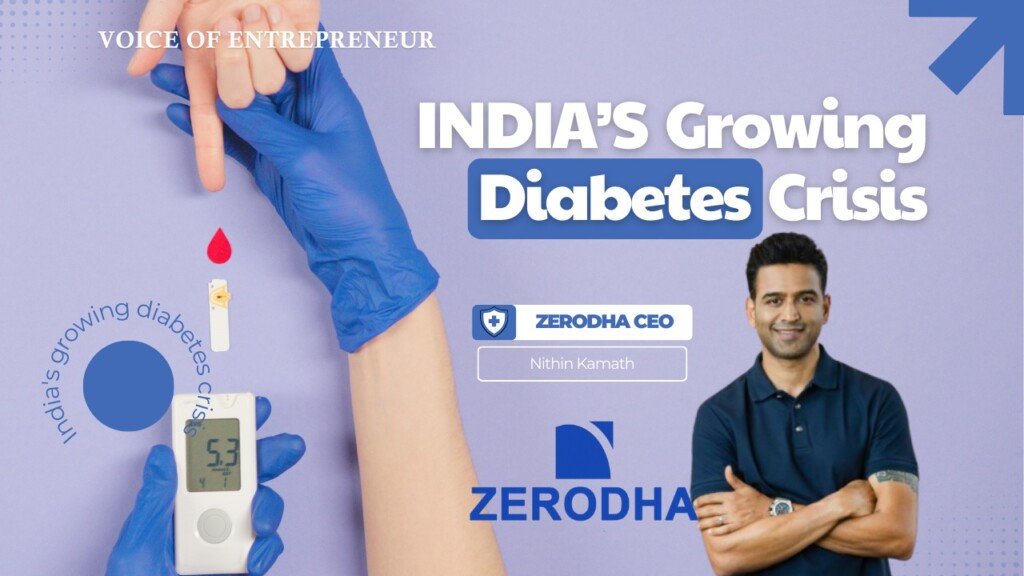Nithin Kamath, the co-founder and CEO of Zerodha, has expressed deep concerns about India’s rapidly growing diabetes crisis. Taking to X (formerly Twitter), Kamath pointed out that India now holds the unfortunate distinction of having the highest number of diabetes cases in the world, with over 21 crore people affected. Once thought to be a disease of affluence, diabetes is now prevalent across all age groups and socio-economic backgrounds.
He highlighted the alarming statistics: “If you’re a 20-year-old woman living in a city today, you have a 64.6% chance of developing diabetes during your lifetime. For young men, the risk is 55.5%,” Kamath stated, emphasizing the widespread nature of the issue.
Low Awareness and Financial Challenges
Kamath drew attention to the significant gap in diabetes awareness, revealing that 27.5% of individuals with diabetes are unaware of their condition. Moreover, among those who are diagnosed, very few receive the necessary treatment and care.
The situation is made worse by the lack of sufficient health insurance coverage in India. With less than 20% of the population covered, most people are forced to pay out-of-pocket for medical expenses, putting a heavy strain on low-income families.
A Call for Preventive Action and Systemic Change
Kamath urged a comprehensive approach to combat the crisis, focusing on prevention as a key strategy. “Simple changes, like an additional five minutes of walking or cycling daily, can dramatically reduce the risk of diabetes,” he suggested. He also called for the expansion of early detection programs, improved access to healthcare, and broader health insurance coverage to alleviate the financial burden.
Additionally, Kamath acknowledged the efforts of startups and organizations working to promote healthier lifestyles but stressed the need for a unified response from individuals, businesses, and policymakers.
A Collective Response to a Growing Crisis
Kamath’s message underscores the urgent need for a nationwide effort to address the diabetes epidemic. With the condition threatening both public health and economic stability, he advocates for immediate and coordinated action, including awareness campaigns and systemic reforms to curb the rising number of cases.
